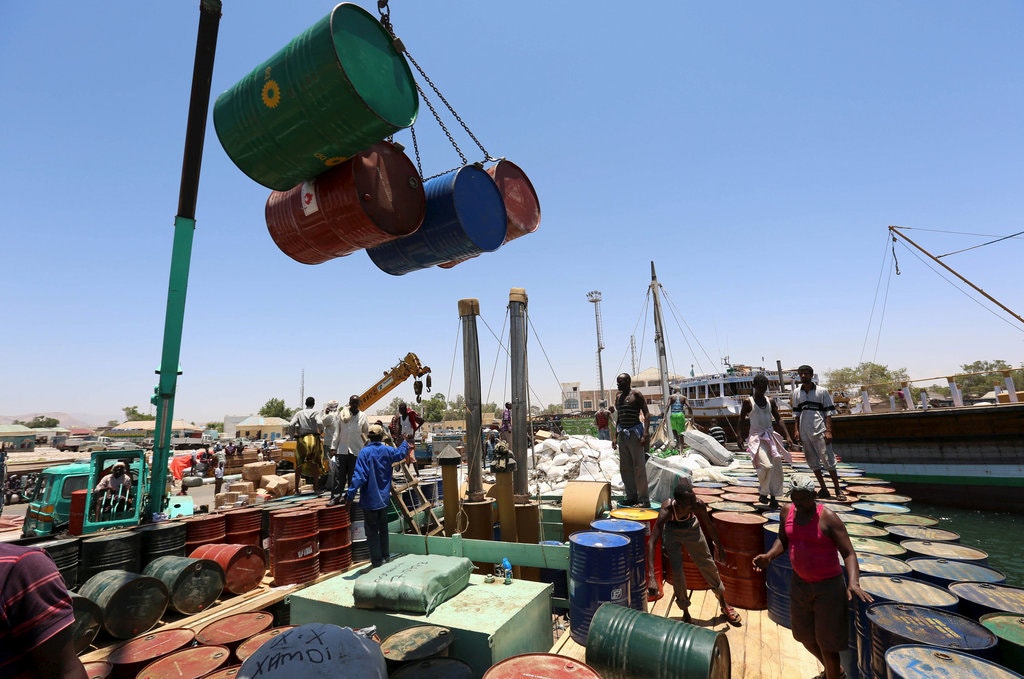With guns, cash and terrorism, gulf states vie for power in Somalia

BY: The New York Times
When a small car bomb exploded outside a courthouse in the bustling port city of Bosaso in northern Somalia, local news reports chalked it up to Islamist militants retaliating for American airstrikes. At least eight people were wounded, and a local affiliate of the Islamic State claimed responsibility.
The attack, however, may have also been part of a very different conflict: one among wealthy Persian Gulf monarchies competing for power and profits across the Horn of Africa.
Over the last two years, war-torn Somalia has emerged as a central battleground, with the United Arab Emirates and Qatar each providing weapons or military training to favoured factions, exchanging allegations about bribing local officials, and competing for contracts to manage ports or exploit natural resources.
In an audio recording obtained by The New York Times of a cellphone call with the Qatari ambassador to Somalia, a businessman close to the emir of Qatar said that the militants had carried out the bombing in Bosaso to advance Qatar’s interests by driving out its rival, the United Arab Emirates.
“The bombings and killings, we know who is behind them,” the businessman, Khalifa Kayed al-Muhanadi, said in the call on May 18, about a week after the bombing.
The violence was “intended to make Dubai people run away from there,” he said, referring to the Emirates’ financial capital. “Let them kick out the Emiratis, so they don’t renew the contracts with them and I will bring the contract here to Doha,” the capital of Qatar.
If accurate, his claims are striking new evidence of the potential for the competition among Persian Gulf states to inflame strife across the Horn of Africa.
“Somalia is the most vivid example of the potential destabilization brought by the Gulf rivalry,” said Zach Vertin, a scholar at the Brookings Institution and a former American diplomat in the region. “The Gulf sees these states as clients. It is all about controlling the space: plant a flag in the ground and lockdown territory and relationships before your rival can.”
“Somalia is the most vivid example of the potential destabilization brought by the Gulf rivalry,” said Zach Vertin, a scholar at the Brookings Institution and a former American diplomat in the region. “The Gulf sees these states as clients. It is all about controlling the space: plant a flag in the ground and lockdown territory and relationships before your rival can.”
The scramble for power in Somalia and the Horn of Africa is in some ways an extension of the cold war that has flared across the region since the beginning of the Arab Spring uprisings more than eight years ago. Qatar and Turkey-backed the uprisings and the Islamist political parties that rose with them. The United Arab Emirates and Saudi Arabia opposed the uprisings and the Islamist parties and accused Qatar of backing militants.
Two years ago, the United Arab Emirates, Saudi Arabia, Egypt and other allied states cut off commercial and diplomatic ties with Qatar in an effort to pressure it to alter its policies.
Somalia is an impoverished country, but its long coastline offers access to the region’s fast-growing markets and influence over vital shipping lanes from the Persian Gulf. An Emirati company manages the port in Bosaso.
Asked about the cellphone conversation, neither Mr. al-Muhanadi nor the government of Qatar disputed the authenticity of the recording, but both said that he was speaking as a private citizen and was not a government official.
“The state of Qatar’s foreign policy has always been one of creating stability and prosperity — we do not meddle in the internal affairs of sovereign countries,” the Qatar communications office said in a statement to The Times. “Anybody doing so is not acting on behalf of our government.”
However in the recording of the phone call, which was made by a foreign intelligence agency opposed to Qatar’s foreign policies, the ambassador expressed no protest or displeasure at the idea that Qataris had played a role in the bombings.